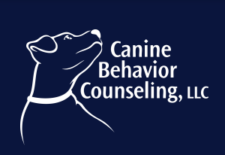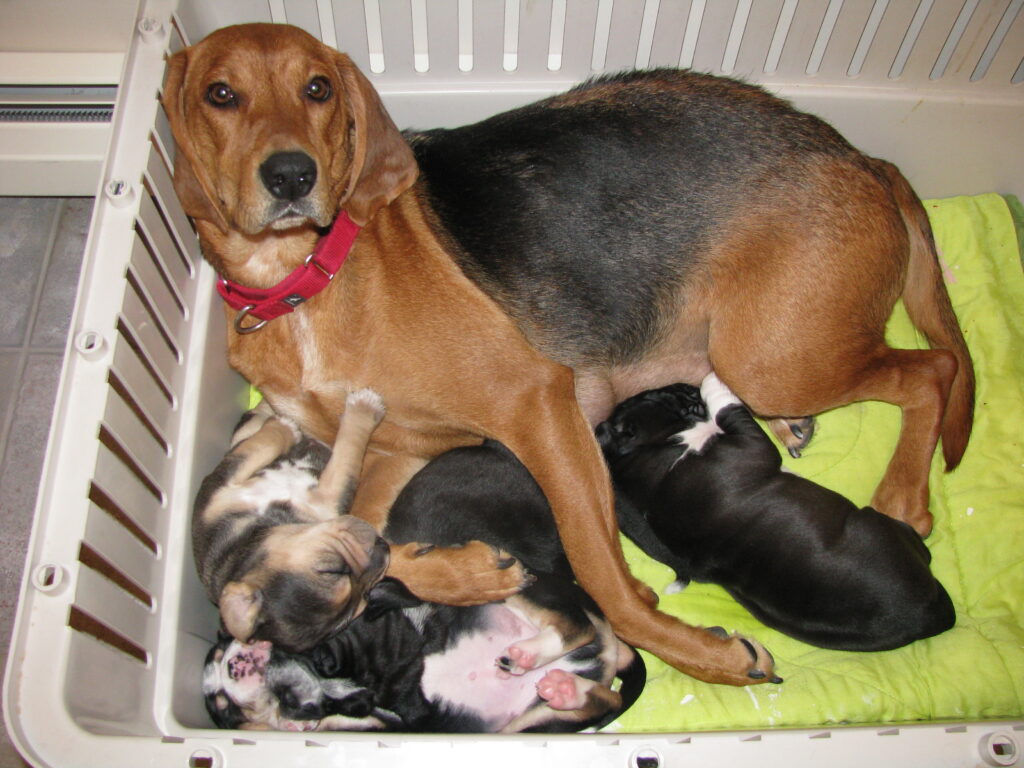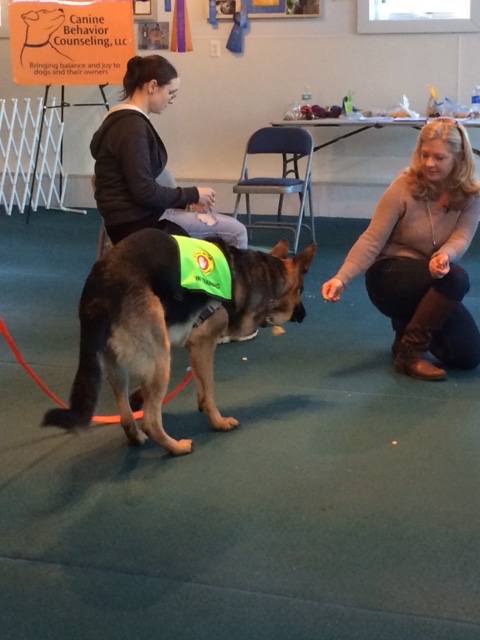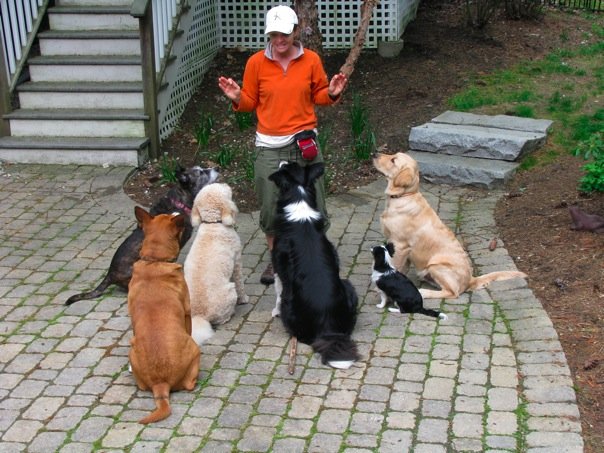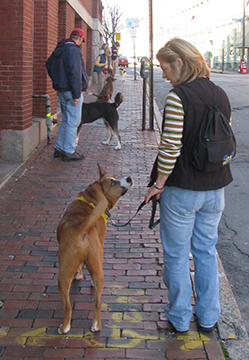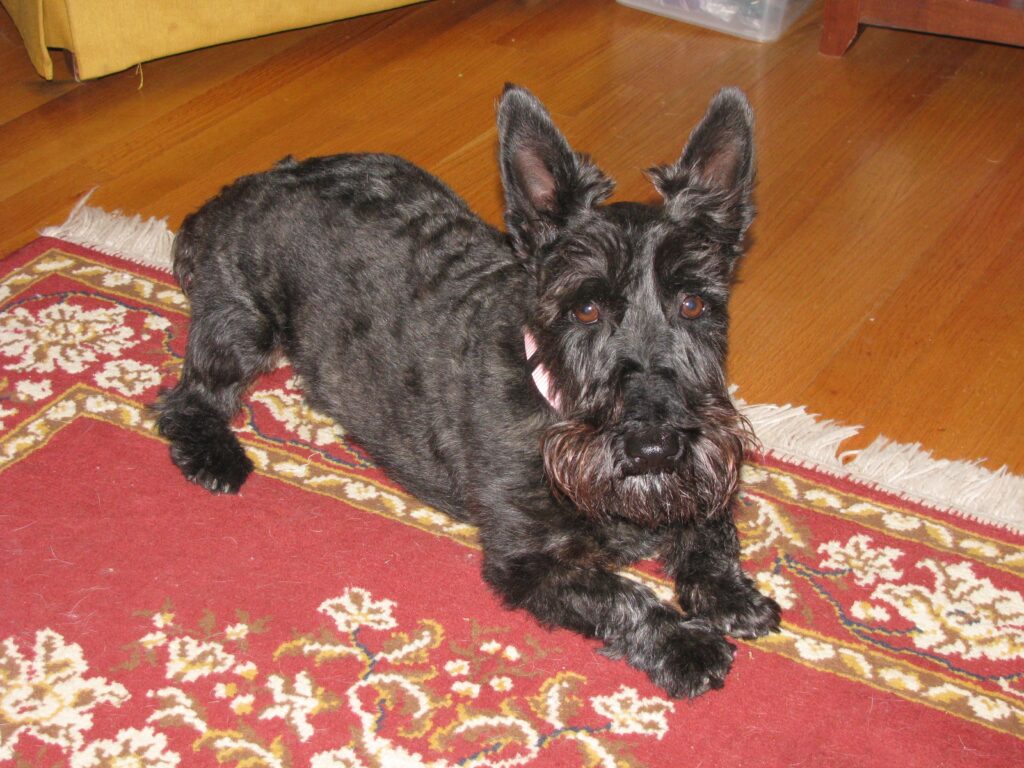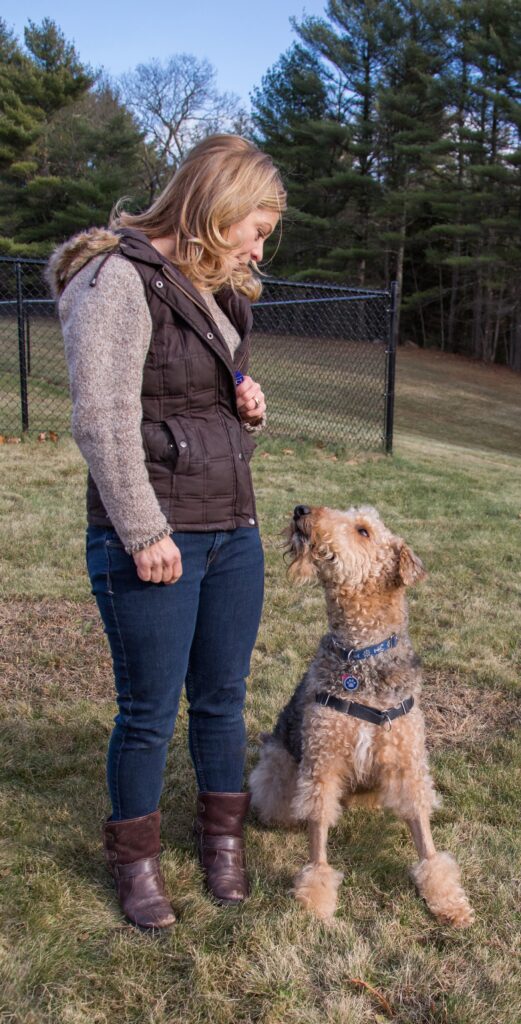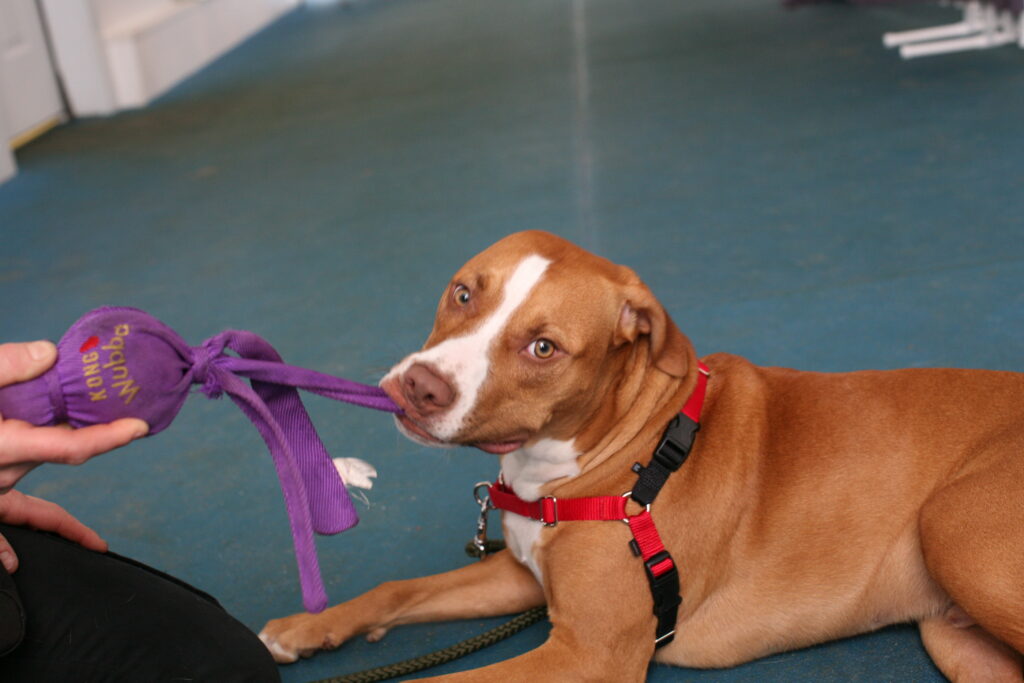In my last blog, I mentioned that changing your dogs behavior begins with good management which prevents him from practicing the unwanted behavior.
I will now explain how to change your dog’s response when meeting a stranger, using the processes of counter-conditioning and desensitization. Counter-conditioning means changing the negative association the dog has formed about people, and replacing it with a positive, happy association using something the dog loves. Desensitization means exposing the dog to the “stimulus” (in this case, a person) at a distance, far enough away that it does not provoke a fear response from your dog, and gradually reducing the distance to the person until the dog is relaxed with the person nearby. Subsequent training can continue as your dog remains calm, and is able to accept treats or play with toys.
